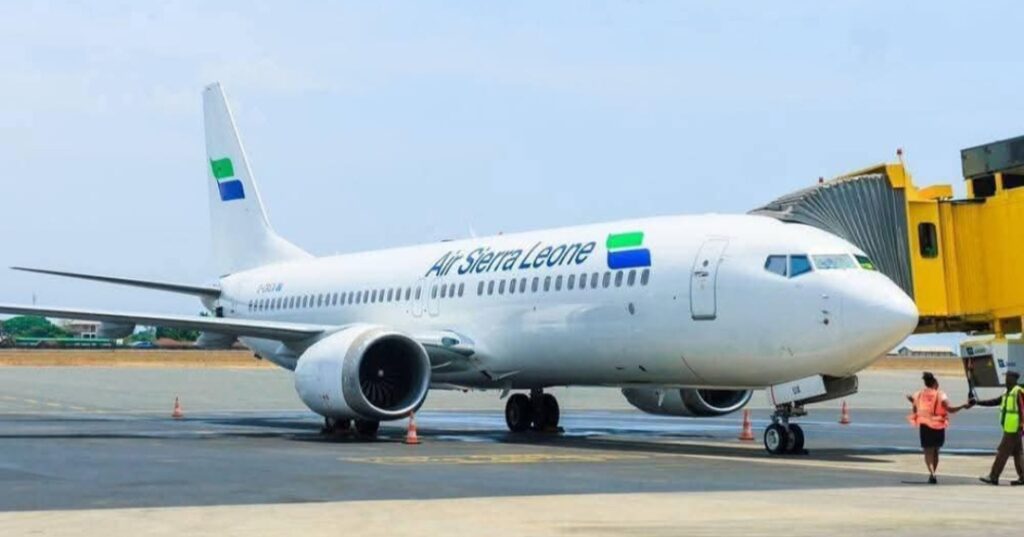
Esther Imonmion
West Africa’s skies are getting more competitive. Air Sierra Leone, in an announcement on 14 September 2025, stepped into one of the region’s busiest air corridors with the launch of a London–Lagos service routed through Freetown — and an introductory return fare of US$950.
The announcement is more than a pricing move; it represents a strategic gamble. By positioning Lungi International Airport as a connecting hub, Sierra Leone is seeking to carve a place in the highly competitive West African aviation market dominated by established players such as British Airways, Virgin Atlantic, and Nigeria’s own Air Peace.
Air Sierra Leone’s management says the connection through Freetown will be smooth and efficient, with short transfer times designed to rival the convenience of direct flights. Officials also argue that positioning Freetown as a transit point could spur new investment in Sierra Leone’s aviation infrastructure, tourism, and services.
“Freetown is strategically located on the West African coast,” one industry analyst observed. “If the airline can deliver reliable schedules and maintain competitive fares, it has the potential to attract not just Nigerians and Sierra Leoneans but also other travelers in the sub-region.”
The airline’s decision to price return tickets at $950 — and in some cases as low as $850 — is a direct challenge to the high fares that have long defined Lagos–London routes. Direct flights often climb well above $1,200, putting a London trip out of reach for many travelers.
For Sierra Leone, the route could mean more than just ticket sales. Increased passenger flow through Freetown would translate into higher airport revenues, more business for hotels and service providers, and stronger visibility for the country as a transit hub.
Still, there are hurdles. The airline will need to maintain consistent flight schedules, navigate international aviation regulations, and build passenger trust in a market where reliability is as important as affordability. Questions also linger over the sustainability of the low fares once the promotional period ends.
Yet the symbolism is powerful: a West African airline once grounded by economic and operational struggles now stepping back into the global stage with ambition and confidence.
For travelers, the immediate benefit is clear — a cheaper, potentially smoother connection between two of Africa’s most dynamic cities and one of the world’s great capitals. For Sierra Leone, the move represents a broader hope: to anchor itself firmly on the map of global aviation.
